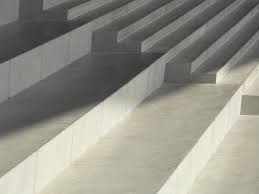
During the concrete mixing water is an essential requirement which is used to make the product compact and strong. However, for the concrete to achieve its maximum strength, water must forcefully be removed from the concrete before hardening. This process creates what is referred to as the vacuum concrete and uses vacuum mats connected to a vacuum pump. The process requires the following:
- Vacuum pumps
- Screed board
- Filter pads
- Disc floater
- Internal Vibrators
- Formwork
- Power trowel
Procedure
First, the concrete is mixed well until it achieves a good workability and then placed on the form works. The fresh concrete enters the water filled channels. The vacuum pump is the used and a large amount of vacuum is created on the surface of the concrete. A large amount of water is extracted from the hardening concrete. This reduces the water to cement ratio and therefore making the concrete more strong. The vacuum concrete is known to be of low density, low permeability, stronger, durable, and has an increased abrasion rate.
It is advised not to prolong dewatering process in the sense of having an extra strong concrete because the dewatering process has a critical value where beyond it there would be no significance impact. The critical value depends on the mix proportion and how thick the concrete layer is.
The vacuum is applied on porous mats which are connected to a vacuum pump. The mats are then placed on filter pads to prevent removal of cement during the dewatering process. The most economical time and of a great value has been found to be between 15 to 25 minutes. Any time beyond this has no or little reduction of water.
Advantages
- The process increases the concrete strength up to 25%.
- It allows for clean and smooth finish surfaces.
- The formwork is removed early.
- It offers a good bond with the existing concrete. This allows it to be used for road repairs and resurfacing slabs.
Disadvantages
The intrinsic permeability of the concrete permits oil, grease, and water to enter through, which can with time weaken the concrete.
Know in detail here about what is self-consolidated concrete and what does it entail? so you can use that material effectively.